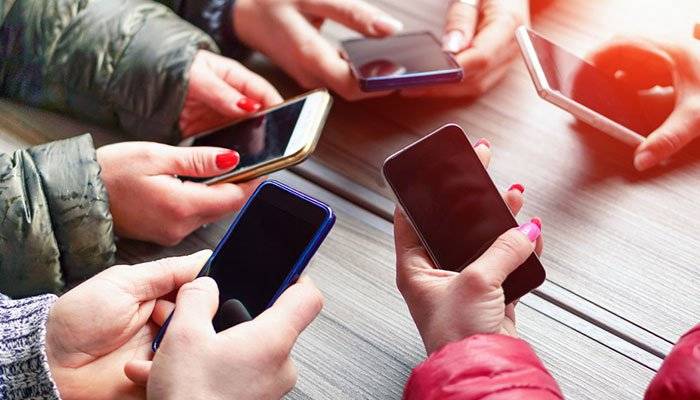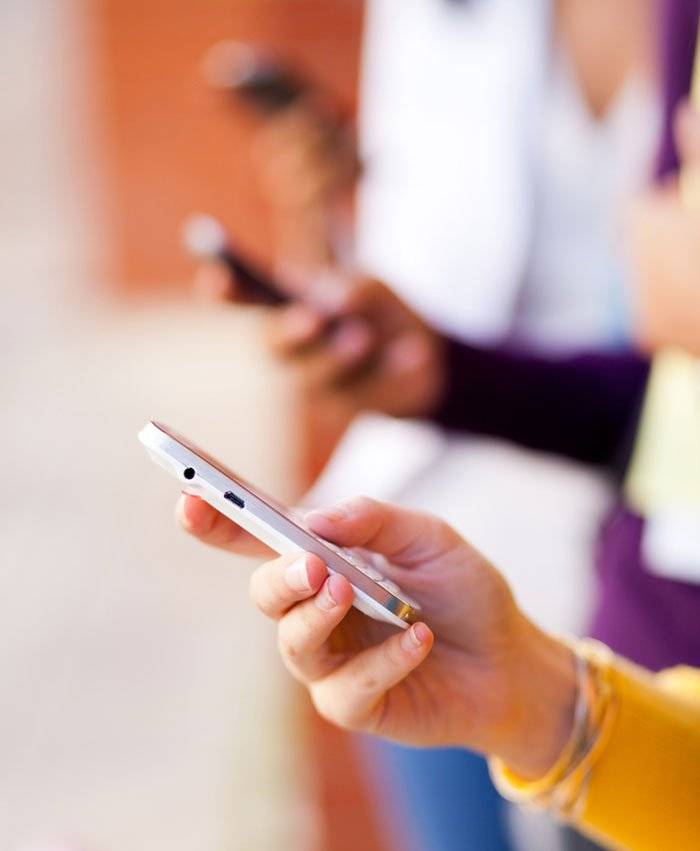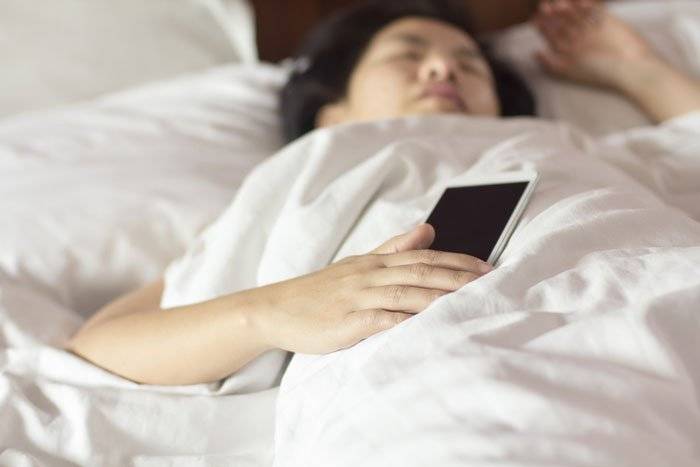If You Own A Smartphone, You Need A Mental Health Retreat ASAP

Mental health is a trending topic and for good reason. 1 in every 13 humans worldwide suffers from anxiety, a rate that is even higher in the US (1 in every 5 people). Depression rates have increased 18.4% between 2005 and 2015. Somewhere in the world, a person dies by suicide every 40 seconds. Studies show that for every death by suicide, there are approximately 20 other attempts.
Seeing a therapist has become as common as going to the dentist, and a study by the Anxiety and Depression Association of America found that around 40 million adults in the United States admit to having anxiety. For perspective, that’s basically everyone living in California, or more than the entire population of Canada. These figures don’t even include those who don’t realize they are suffering from depression, stress, or anxiety, meaning the percentage is actually higher.
It’s a scary time for mental health. But finally, society is opening a dialogue about why everyone feels as if they are falling apart, and what can be done to help. Mental health is losing its taboo-ness.
Smartphone Use Leads To Pessimism
Let’s get to the bottom of what’s tampering with our wellbeing. What has led us to our current mental health situation? Why are depression and anxiety increasing? There is certainly a lot of depressing news about the coronavirus, toxic air, deforestation, global warming, garbage-filled oceans, hunger, racism, sexism, bigotry, and the list drags on. But that’s not what’s causing our depression. Genocide, natural disasters, and epidemics have always occurred. The difference today is our awareness. Thanks to our smartphones, we are constantly connected. And while having easy access to information 24/7 has its perks, it comes with seriously consequential downsides.
Hearing about all the bad things happening worldwide every time you open your phone creates a “sky is falling” mentality. You start to focus on disheartening events, and the weight of the world’s problems weighs on your mind ‘round the clock. The result isn’t just that you trend pessimistic, it’s that pessimism compromises your stress-management capabilities.
First, pessimists naturally dwell on stressful or negative events longer than optimists. This means your stress hormone—cortisol—levels are elevated for longer. Over-exposure to cortisol has been linked to anxiety, depression, metabolic issues, heart disease, poor sleep, and weight gain, as well as memory and concentration impairment.
Second, optimistic people have been proven to be more active, eat more healthfully, and they don’t typically turn to excessive alcohol or drug use to get their kicks.
This doesn’t mean you should be like an ostrich, burying your head in the sand, believing unseen danger is no danger at all; rather, it’s important to learn healthy ways to cope with life’s stressors.
Social Media Increases Our Anxiety
Beyond the exhausting stream of negative news, social media is proving to be a menacing opponent to our mental health. It’s the perfect landscape for our insecurities and self-criticism to proliferate. Whenever we log into social media we see “perfect” people who make us doubt our self-worth. I need to be as skinny, or as muscular; I should make more money; I need to find a way to afford expensive, trendy clothes; my job isn’t good enough; I’m not as adventurous; I ought to travel more; I must experience more; I need to be more.
Incessantly comparing ourselves to a seemingly fabricated reality quickly takes a toll on our wellbeing. We spend more time worrying about what we are not, rather than becoming who we should be, and our anxiety spikes.
The depressing news we receive daily combined with our need to succeed and the constant comparison game we play on social media is a recipe for anxiety. Phones keep us always “on,” prohibiting us from truly breaking away as we constantly search for the instant gratification technology brings, instead of slowing down and relaxing. We are attached to technology instead of to ourselves and our surroundings, and that allows physical and mental toxicity to thrive.
We Need To Regain Balance In Our Mental Health
So what about today’s environment makes it so toxic? In short, we’re out of balance. Everyone is hyper-focused on career and personal success. We’ve stopped treating our mind, body, and spirit respectfully.
Popular belief these days is that you have to be the hardest worker, dedicating every spare moment to your work in order to be successful. Taking the time to eat a wholesome meal or get a full night’s sleep somehow equates to not working hard enough. Pushing your body to breaking point has become like a badge of honor. Just read interviews with high-profile business people or celebrities. Chances are they’ll boast about their long work hours, lack of time to eat or sleep, and how they prioritize their career and image above all else.
But failing to give yourself time to rest and recharge isn’t something to brag about, because really you’re functioning at a small percentage of your full potential. Crazy as this may sound, by allowing yourself to properly sleep and eat healthfully, you’ll be able to get more done. How? It all comes down to having more energy and being more alert. And that’s not all, once you stop comparing yourself to other people, you’ll be able to focus on reconnecting with yourself instead.
Forget “Likes”. Be Real.
Do you remember what it was like before social media and smartphones? Back then, mornings started out by getting ready for your day. Nowadays, the first thing most of us do when the alarm sounds is to check our phone and tap into social media. Essentially, we’re comparing ourselves to others–and consequently feeling inadequate–before we even have a chance to put our slippers on.
Instagram’s test in removing “likes” is a step in the right direction. In a recent press conference, Instagram chief Adam Mosseri stated, “The idea is to try and depressurize Instagram, to make it less of a competition, and give people more space to focus on connecting with the people they love and the things that inspire them.”
The hope is that removing “likes” will help users stop comparing themselves to others, thus removing the stress of being “good enough” or as liked as everyone else. This comparison game is causing many people to feel as if their anxiety is spinning out of control, but few people actually stop long enough to address the cause of the decline in their mental health and wellbeing.
Put Down The Phone
The good news is it’s not hopeless. Just because the odds seem stacked against us doesn’t mean we are helpless. We can do many things on our own to help break the trance of our phones (read our recent article on how to do a digital detox). For instance:
- Immerse in nature (aka “Forest bathing”). Even just spending 20 minutes a day in nature has been proven to help lower stress and anxiety, decrease blood pressure, lower your heart rate, and decrease your chances of developing a psychiatric disorder.
- Read a novel. Find a comfy chair and put your phone on silent. You might find you can go more than two paragraphs without getting distracted when it’s just you and a good story.
- Learn a new hobby. The practice of learning something new is extremely beneficial for our brain health.
- Take a bath. Alone, without your phone. Light candles and watch them dance instead.
- Exercise
- Do yoga
- Eat healthful foods. Pay attention to the flavors as they hit different parts of your tongue.
- Connect with other humans
- Volunteer
- Pet an animal
- Take a vacation
- Visit a spa
- Meditate. The use of meditation apps in adults in the US has increased from 4.1% in 2012 to 14.2% in 2018. Are you part of that statistic?
…this is just the tip of the iceberg.
Don’t Do It Alone. Try A Health Retreat.
If you are feeling overwhelmed and don’t know where to start, or perhaps don’t have the time or energy to get things back on track yourself, check out a wellness retreat that incorporates mental health practices.
Mental health retreats are a great place to start—you’ll be surrounded by people who are in the same boat as you and having support from a team of professionals will ensure you stay on track.
Health retreats will actually help you break toxic habits and provide you with long term solutions for living a balanced life, but in case you are thinking they just aren’t for you, I’m here to tell you they are. Why? Because they aren’t one-size-fits-all.
There are many different types of mental health retreats available to suit various needs and interests. Some retreats focus on eastern healing practices, like yoga and meditation, while others focus purely on self-care (think spa: mud baths, steam rooms, massage, etc.). Some are open to everyone while others are gender-specific. Others are centered around particular activities, such as farming, clean-eating, creativity, or hiking. Many retreats emphasize connecting with nature, but for all the indoors-personalities, others don’t.
And while the word “retreat” might make it sound like something only possible for wealthy people with unlimited days off from work, there are actually retreats available at any budget, for any length of time, and for any lifestyle choice. Finding a place to unplug and reset is more attainable than it seems.
Mental Health Retreats Are About More Than Just Relaxing
While visiting any mental health or wellness retreat will do wonders for your wellbeing, starting off with one that combines many aspects of your health might be the best choice. Such retreats, like Mountain Trek, are holistic health retreats that focus on five areas of health in harmony: fitness, nutrition, stress management, sleep, and detoxification. Combining these five areas has a profound effect on your health and wellbeing, laying the groundwork to reduce social anxiety, decrease depression, and relieve stress in your life back at home.
Instead of focusing on just one area of your life, these types of holistic health retreats address each of these key areas in equal turn. After all, each one plays a role in our wellbeing and are all equally affected by the toxicity of modern society.
For example, fixing your diet is a great place to start and will make you feel better, but if your stress levels are still sky-high your life will still feel toxic and unbalanced. This is why a wellness retreat like Mountain Trek is an ideal choice to get you started on your journey to a detoxified life. Every detail of your stay there is planned and prepared for you–all you have to do is focus on being present in the moment. It takes the guesswork out of trying to learn how to detox on your own.
A visit to a mental health retreat is about more than just relaxing–it’s about changing your life and giving you the tools you need so you can continue to reap the benefits long after you’ve returned home.
Prevent Burnout. Invest In Longevity.
You can only push yourself so hard before burning out. Between the go go go attitude of modern society, the negativity surrounding us worldwide, and the constant need to compare ourselves to each other, it’s no wonder our mental health is in a state of decline.
Our way of life isn’t sustainable; we need to reset our bodies and minds, beginning with purging toxic thoughts and habits. Taking time for yourself shouldn’t be viewed as a treat, but rather as a necessity. We need to take care of our bodies and souls if we want to be able to function at our best without breaking down. We only get one body, after all. Show yourself some respect and tackle the issue before it gets worse!
Visiting a mental health retreat will teach you the skills you need in order to reset and recharge by helping you cultivate valuable practices you can continue back at home. It’ll jumpstart the process and be the catalyst for changing your life and living a healthier lifestyle, both mentally and physically. There’s never been a better time than now to unplug and reconnect!
What is Mountain Trek?
Mountain Trek is the health reset you’ve been looking for. Our award-winning health retreat, immersed in the lush nature of British Columbia, will help you detox, unplug, recharge, and roll back years of stress and unhealthy habits. To learn more about the retreat, and how we can help you reset your health, please email us at info@mountaintrek.com or reach out below:






